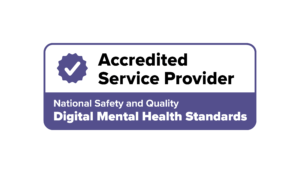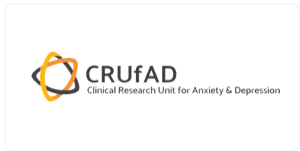Learning Hub
Learn about the symptoms of different mental health conditions and what you can do to tackle them.
Practical Skills for A Peace of Mind
What is Mindfulness?
Mindfulness is a particular way of being – it’s focusing on the here-and-now in an open-minded and non-judgemental way. Mindfulness is almost the opposite of getting caught up in your thoughts. It’s the ability to notice what you’re thinking, recognise that your thoughts are just one way of seeing things, and shift your attention back to the present moment. Mindfulness also involves kindness and self-compassion – when you practice mindfulness, you allow yourself to feel whatever you feel, without judgement.
Mindfulness practices can vary a lot. They can range from daily mindfulness meditations, to taking a moment to enjoy the feeling of sunshine on your face, to getting ‘in the zone’ while dancing, playing sports, or practicing an instrument. For some people, mindfulness is a lifestyle, while others prefer just to use a few mindfulness-based strategies when they need to manage stress.
How Does Mindfulness Work?
Often, when we’re feeling stressed, worried, or depressed, we’re thinking about the past or future. We tend to worry about things that might happen and ruminate about things that we could have done differently. We also tend to judge ourselves when we think like this (for example, “That email I sent was so stupid. She’s never going to ask me to do another project with her again!” or “What if I get diagnosed with cancer?”). Mindfulness can help people un-learn these unhelpful ways of thinking, by teaching them how to:
- Notice when they’re thinking this way
- Shift their attention back to the present moment
- Experience this moment non-judgementally
In doing so, mindfulness can help people learn to effectively manage and respond to feelings of stress, depression, and anxiety, improve focus and concentration, and boost feelings of positivity and well-being.
Mindfulness can also help people improve their ability to regulate their emotions, and in turn, improve their relationships with other people. Mindfulness doesn’t stop people from experiencing unpleasant emotions, like anger, sadness, or jealousy. However, it can help people remember that they can choose how they respond to these emotions, giving them the chance to respond to stressful situations calmly, effectively, and compassionately.
How Can Mindfulness Help Me Feel Better?
Mindfulness won’t necessarily change how you feel – it’s not intended to transform or get rid of unpleasant and painful emotions. It can, however, give you some space from your thoughts and emotions, to reduce the impact that they have on your life.
For example, if someone feels depressed, then they might get stuck in negative, self-critical thoughts and cancel plans with friends – depriving themselves of the chance to connect with other people and feel better. Mindfulness wouldn’t necessarily get rid of these feelings of depression. But, it would give this person the ability to recognise that they’re having negative, unhelpful thoughts, challenge these thoughts, and decide that they want to see their friends anyway (which might make them better).
So, while mindfulness didn’t directly target this person’s depression, it did empower them to make choices and connect with other people despite feeling depressed (which, in the end, probably did make them feel better).
Mindfulness vs. Meditation
Although ‘mindfulness’ and ‘meditation’ are often used interchangeably, these terms actually refer to quite different things. Mindfulness is a way of being – it’s focusing on the present moment, without judgement. Meditation, on the other hand, is a specific type of practice that can improve mindfulness skills. Meditation is a type of mindfulness, but not all mindfulness involves meditation.
Meditation is like any other skill – it takes practice! It can feel difficult, awkward, and uncomfortable at first, but with time, it tends to become easier and more natural. There also isn’t just one way to meditate. There are hundreds (if not thousands) of meditation practices you can try, from sitting and noticing your thoughts, to focusing on your breath, to visualisation exercises.
Strategies for Improving Mindfulness-Meditation Skills
These are just some simple mindfulness-meditation strategies that you can try. However, meditation isn’t for everyone, and there are other ways to develop mindfulness skills, which we explore in our program.
Focus on Your Breath
- Breathe in through your nose for 3 seconds, and out for at least 3 seconds.
- As you breathe, focus on your breath. Notice how it feels in your nose, throat, chest, and stomach.
- As you breathe out, notice any tension leaving your body.
- Whenever your mind thinks of something other than your breath, don’t worry, just bring your attention back to your breathing.
- Repeat for at least 3 minutes.
Listen to Music
- Listen to one of your favourite songs
- As you do, focus your attention on what you hear. What instruments do you notice? Can you identify all of them? If there’s a singer, what does their voice sound like? Is it loud, smooth, or raspy?
- After about a minute, shift your attention to how this music makes you feel. Do you want to dance, smile, or cry? What changes do you notice in your body?
- After another minute, focus on how the music sounds again. Do you notice anything different this time? What do you notice that’s the same?
- Every time you mind wants to think about something other than the music, just gently shift your attention back to the exercise.
Body Visualisation
- Imagine a soft white ball of light, glowing in your head.
- Imagine this light slowly moving down your body, from your head, to your neck, to your shoulders.
- As you do, imagine what this light would feel like. Is it warm? Light? Soft?
- Continue to imagine this light slowly travelling through the rest of your body, down each arm, down your stomach, and into your legs and feet. Imagine what it would feel like.
- Each time you get distracted, just bring your focus back to the exercise.
- Repeat for at least 5 minutes.
Learn More About Mindfulness
Mindfulness-Based Online Programs for Your Mental Health
Check out our practical, self-paced online programs that teach mindfulness and CBT skills to improve your wellbeing.




